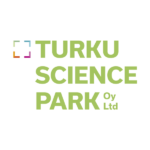University of Tartu: Delivering medical education and health care system development to Vietnam
Estonia can build on own experiences when succesfully exporting knowledge on medical education and health care system development to Vietnam. The collaboration between Tartu and Hue focus on In vitro fertilisation, biobanking and joint doctoral schools.
By Kadri Oja, University of Tartu.
Need for upgrade of the Vietnamese health care system
Despite being still a low-income country, Vietnam has made significant improvement in the field of health care. However, like other growing economies, Vietnam has seen a rapid growth of non-communicable diseases such as cancer, cardiovascular diseases and diabetes. For example, the cancer incidence rate is increasing by 5% annually. On this background, the Vietnamese health care infrastructure does not meet today’s need (demographic changes), not even speaking of complying with the increasing demand in the future.
The biggest weaknesses of the Vietnamese health care system are connected with human resources. One problem is that even though the number of health professionals has risen in the last decade, there are still too few educated people and the quality of their education is poor. For example, there are only 0.7 medical doctors per 1000 inhabitants, while the EU average indicator is 3.3 per 1000 inhabitants. Thus the Vietnamese have decided to improve the quality of medical training as well as develop research.
Estonia as a role model
In the past 20 years or more, Estonia has been very progressive and successful in building up its research system. Just like Estonia needed the support of more developed countries and more experienced doctors and researchers to build up its own medical system, Vietnam needs similar support today.
The role of the medical researchers of the University of Tartu and the doctors of Tartu University Hospital in the development and support of the health care system of Vietnam started when the doctors and teaching staff of medical universities of Vietnam first came to Estonia to get new experiences. By today, more than 60 Vietnamese colleagues have been job shadows for the UT medical researchers. During the job shadowing period lasting from a few weeks to several months, they got an overview of the Estonian teaching and medical practice in order to use that to improve the teaching of medical specialisations in Vietnam and thus the quality of medical assistance in general.
In vitro fertilisation in focus
So far, the researchers of the University of Tartu have most actively cooperated with the second largest medical university in Vietnam, Hue University of Medicine and Pharmacy. At the end of 2013, Hue University of Medicine and Pharmacy opened the 18th infertility clinic in Vietnam thanks to the support of the University of Tartu and Tartu University Hospital. In August 2014, the same clinic was proud to present their first test-tube baby, who would not have been born in the near future without the help of the doctors and embryologists of the University of Tartu.
In vitro fertilisation is an important part of the cooperation between the doctors and researchers of the University of Tartu and Hue University of Medicine and Pharmacy. Hue university had the necessary equipment already some time ago, but they had not done any procedures, as they lacked the competence. So the Vietnamese doctors and teaching staff came to the University of Tartu to obtain the required knowledge. Estonian experts helped them collect samples and taught them how to store and analyse these samples.
However, reproductive medicine is only one field of cooperation between the UT and Vietnam. There is also active cooperation in orthopaedics and stomatology. Paediatricians also develop joint projects and there is successful cooperation in the field of genetic research. The researchers of the two countries study rare diseases, such as developmental bone disorders and bone cancer, and the genetic factors of them.
Creation of the national biobank of Vietnam
In November 2013, the UT and Hanoi Medical University signed a mutual cooperation agreement to create the national biobank of Vietnam. Researchers of Hanoi Medical University who had familiarised themselves with the structure of several biobanks in Europe were most impressed by the Estonian Genome Centre of the University of Tartu. Vietnam with its population of nearly 90 million people is hoping to develop the respective legislation in the coming years and to soon begin collecting the data of gene donors all over the country.
To initiate research, the partners actively cooperate with several other Vietnamese medical schools and research institutions, with the Office of Genetic Counseling and Disabled Children in Vietnam as well as with King’s College London. For instance, joint research is being prepared to investigate the effect of exposure to dioxins on biological organisms; the parties are also discussing the action plan for researcher exchange.
Joint doctoral school
With the Hue University of Medicine and Pharmacy, the UT has also discussed the creation of a joint doctoral school, i.e. the idea to create a doctoral students’ programme, as the Vietnamese medical schools are in dire need of teaching staff with doctoral degrees.
UT researchers have been to Vietnam and the Vietnamese have been to Tartu in the framework of projects supported by the Swedish International Development Agency, the European Regional Development Fund and the Estonian national structural assistance. The partners are planning an Erasmus+ strategic partnership project together with ScanBalt fmba, Karolinska Institutet, Ernst-Moritz-Arndt-Universität Greifswald and University of Essex.
For further information contact:
Kadri Oja
Office of Academic Affairs
University of Tartu
Phone: +(372) 737 6108
E-mail: : kadri.oja (Tartu, Estonia)













